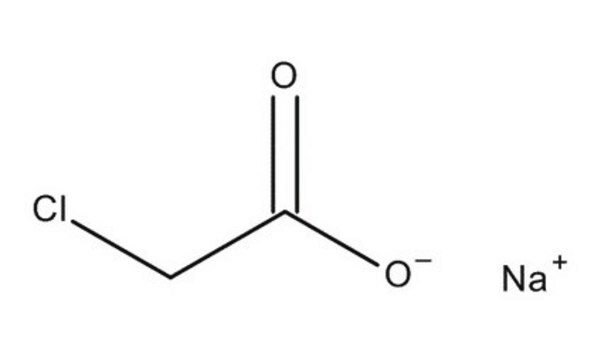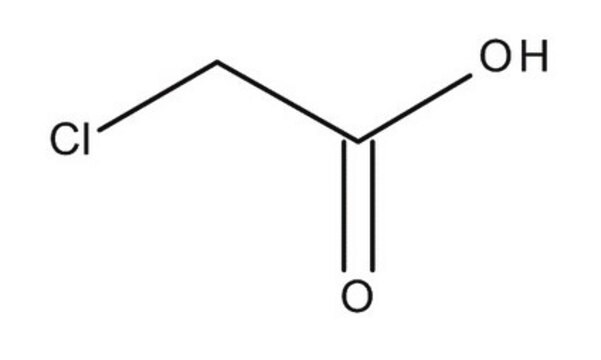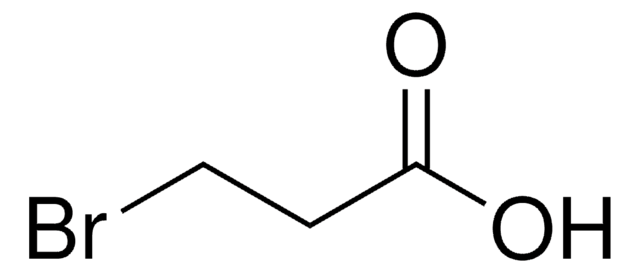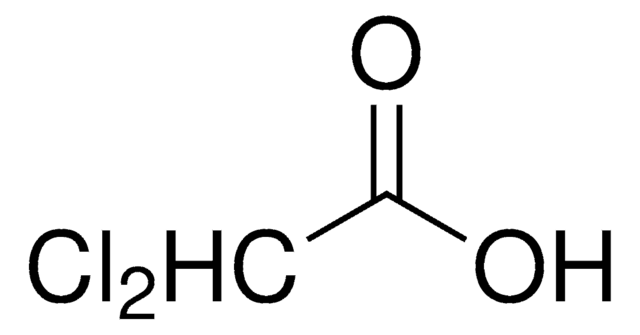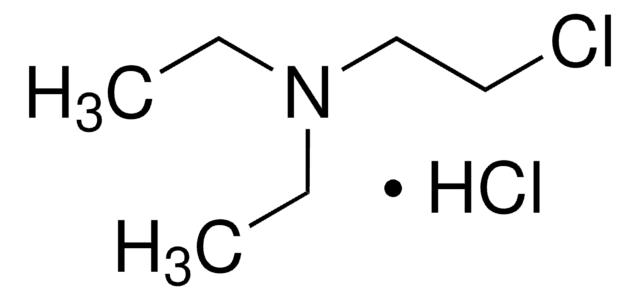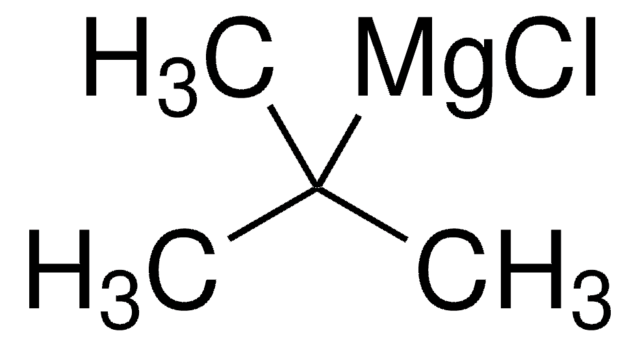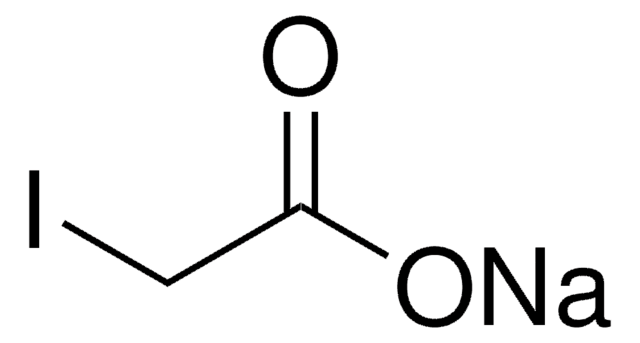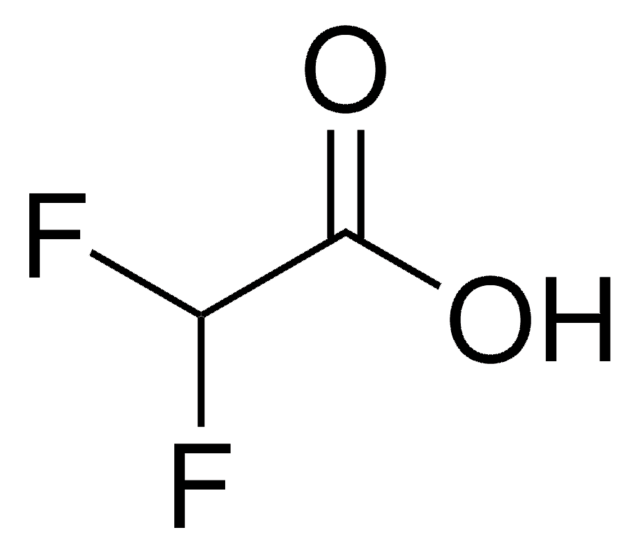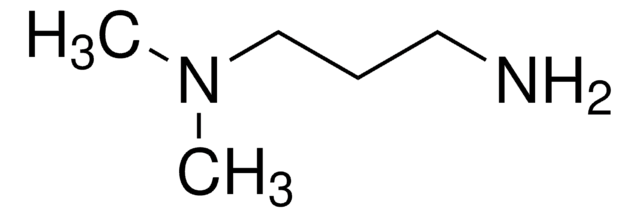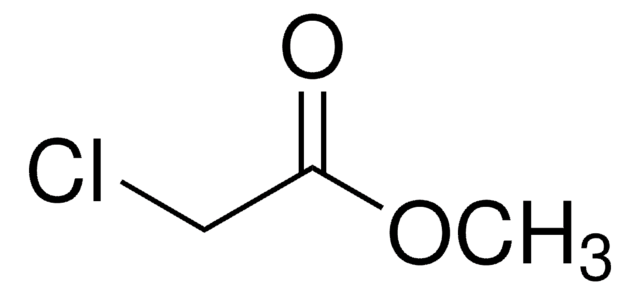291773
Sodium chloroacetate
98%
Synonyme(s) :
Chloroacetic acid sodium salt
About This Item
Produits recommandés
Pureté
98%
Forme
powder or chunks
Pf
199 °C (dec.) (lit.)
Chaîne SMILES
[Na+].[O-]C(=O)CCl
InChI
1S/C2H3ClO2.Na/c3-1-2(4)5;/h1H2,(H,4,5);/q;+1/p-1
Clé InChI
FDRCDNZGSXJAFP-UHFFFAOYSA-M
Vous recherchez des produits similaires ? Visite Guide de comparaison des produits
Application
- Nano-copper ions assembled cellulose-based composite with antibacterial activity for biodegradable personal protective mask.: This study explores the creation of a nano-copper ions cellulose-based composite, showcasing its potential antibacterial properties and application in biodegradable personal protective masks (Shao et al., 2023).
- Effective extraction of fluoroquinolones from water using facile modified plant fibers.: This article investigates the use of modified plant fibers for the efficient extraction of fluoroquinolones from water, highlighting the utility of sodium chloroacetate in the modification process (Zhang et al., 2022).
- Sodium Chloroacetate Modified Polyethyleneimine/Trimesic Acid Nanofiltration Membrane to Improve Antifouling Performance.: The study details the improvement of antifouling performance in nanofiltration membranes through modification with sodium chloroacetate (Gu et al., 2021).
- Preparation of BiOCl/Bi(2)WO(6) Photocatalyst for Efficient Fixation on Cotton Fabric: Applications in UV Shielding and Self-Cleaning Performances.: This research focuses on the application of a BiOCl/Bi(2)WO(6) photocatalyst in UV shielding and self-cleaning performances on cotton fabric, employing sodium chloroacetate in the preparation process (Chen et al., 2021).
Mention d'avertissement
Danger
Mentions de danger
Conseils de prudence
Classification des risques
Acute Tox. 3 Oral - Aquatic Acute 1 - Eye Irrit. 2 - Skin Irrit. 2
Code de la classe de stockage
6.1D - Non-combustible acute toxic Cat.3 / toxic hazardous materials or hazardous materials causing chronic effects
Classe de danger pour l'eau (WGK)
WGK 3
Point d'éclair (°F)
518.0 °F - closed cup
Point d'éclair (°C)
270 °C - closed cup
Certificats d'analyse (COA)
Recherchez un Certificats d'analyse (COA) en saisissant le numéro de lot du produit. Les numéros de lot figurent sur l'étiquette du produit après les mots "Lot" ou "Batch".
Déjà en possession de ce produit ?
Retrouvez la documentation relative aux produits que vous avez récemment achetés dans la Bibliothèque de documents.
Les clients ont également consulté
Notre équipe de scientifiques dispose d'une expérience dans tous les secteurs de la recherche, notamment en sciences de la vie, science des matériaux, synthèse chimique, chromatographie, analyse et dans de nombreux autres domaines..
Contacter notre Service technique